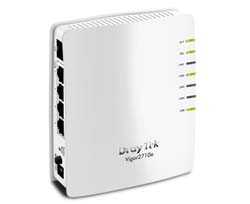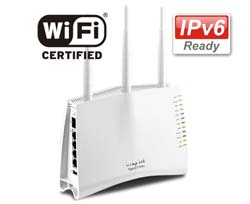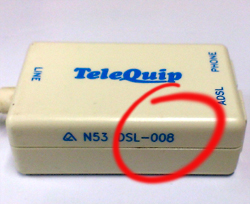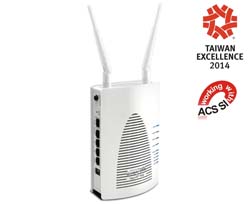Modems, Routers and WiFi access points
while modem and router seems to be used interchangibly nowadays they are different devices. although many are both at once.
a router will share a broadband connection amongst many devices and generally forms the backbone of a network as the DHCP server. the router does as the name suggests, it routes traffic.
a modem is usually only concerned with converting your ADSL/NBN signals into network traffic.
lately both are handled by the one device referred to as a modem/router.
many routers also include WiFi..especially the consumer level hardware. it's not advised to go this route but it's getting harder to avoid. why would you avoid free WiFi? a decent router will last for years, a decent wifi will be outdated well before the router needs replacement. a separate WiFi access point will be significantly less expensive than a good router WiFi combo.
What Features Do I Need?
the simplest task a modem does is browse the internet, it could drop the connection out half a dozen times after the page loads and the user would never know. if all you need is basic browsing even the cheapest modem will do fine.
if your using the modem for gaming or Voip then dropouts of even a second are unacceptable. however if the number of users is low a decent midrange modem will serve you well
if you have limited users but each user is using the network for different things you will need a router capable of QoS or Quality of Service. different network traffic has different demands on speed and timing. for example, youtube, itunes and other streaming video and music services don't have many time issues as long as you have the download speed to exceed the playback. conversely Voip phone calls and livestreaming videos and music have no use for speed and are entirely reliant on the information arriving in the correct order. if the information arrives out of order the call/video becomes chopped up. all the speed in the world wont help if your router can't give the information to the destination at the right time.
there are different kinds of quality of service, one type determines what kind of information is being sent and received and organises it from there. typically VoIP, Gaming, downloads then browsing as it's the easiest to get right. so a voip call has priority on the bandwidth over checking facebook. without this kind of quality of service loading a page on facebook could cause the phonecall to become choppy
The other Form which is what we prefer to use is dedicating a percentage of the total speed to certain devices on the network. we would typically dedicate 10-20% of the bandwidth to the VoIP connections so that no matter how hard the rest of the network is pushing the calls would always have their bandwidth on demand. this is not a common form of QoS though and we've only seen it on drayteks higher end modems.
For people working from home using VPN's and remote desktops we would only recommend the above average routers and modems
WiFi Do's and Don'ts
WiFi is much cheaper than cabling, but don't fall into the trap of believing you wont need cabling, WiFi has a fair amount of trial and error and operating a wireless network is much harder than a wired network.
You are better off using access points rather than a built in WiFi from the router. Routers generally outlive WiFi technology.
Using more small access points is better than using one big one. you can generally cover a square area more tightly with 4 access points and cause less congestion in the airwaves with smaller antennas, one big antenna from a central point will possible miss the outer extremities of your area and allow your neighbours better access.
Mesh wifi has vastly simplified this advice.



